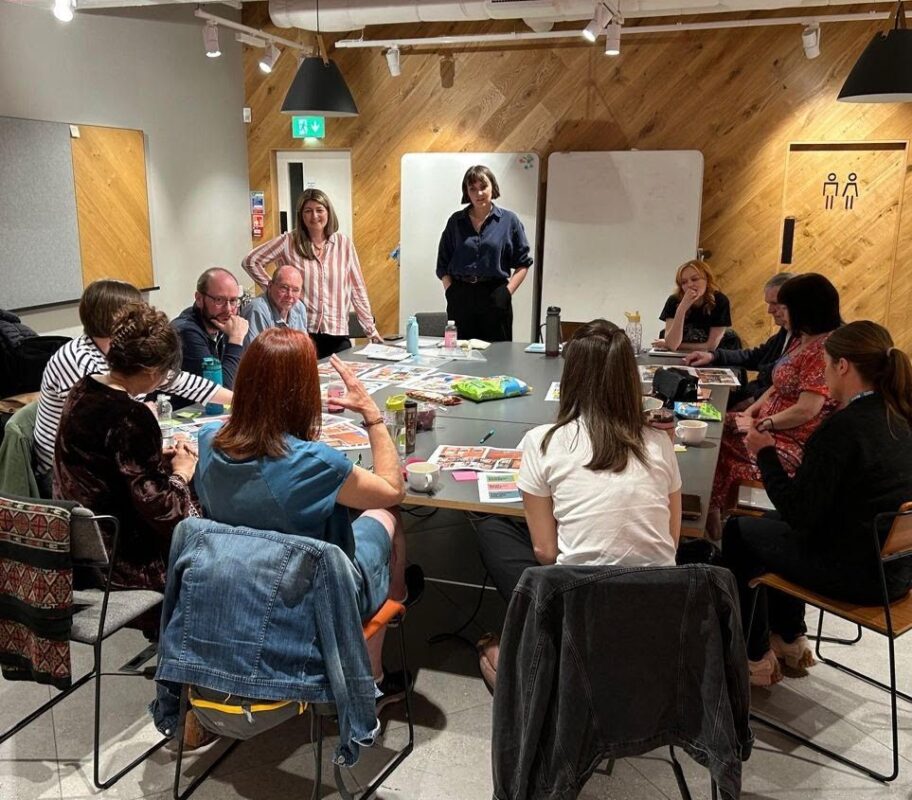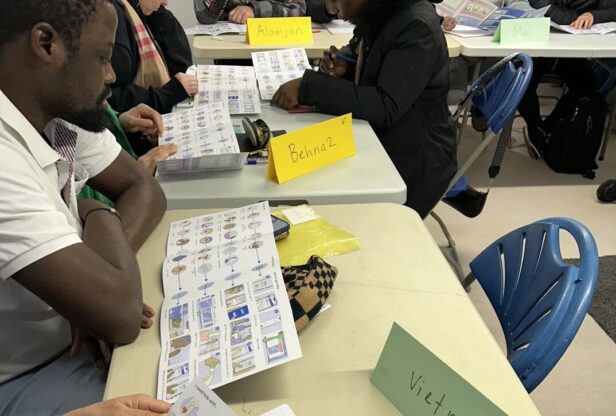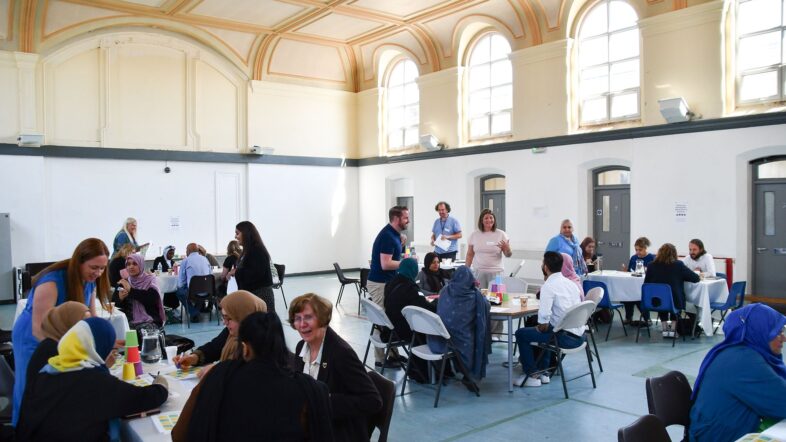Reflections from Magpie’s Senior Research Manager, Mirela Neto
Searching for depth is at the heart of how we facilitate focus groups at Magpie. We pride ourselves on creating meaningful change within communities by asking the difficult questions and holding space for honest, emotional conversations. We don’t shy away from complexity or discomfort; in fact, we lean into it. We’re not afraid to face the unknown because we know that real insights often live there.
But facilitating focus groups on sensitive topics and holding difficult conversations with individuals from different walks of life comes with deep responsibility. Sometimes, a participant shares more than expected — a deeply personal story, a painful memory, or an experience that stops the room in its tracks. These moments can be profound and moving, but they also carry emotional weight. The tone of a session can shift in an instant. One comment, one memory, one story can unearth buried emotions, stir difficult past experiences, or steer the conversation far from its intended purpose.
As facilitators, we are tasked with holding one person’s vulnerability while remaining attuned to the collective energy and emotional safety of the entire group. And while our role is to create a space where people feel safe to speak their truth, it’s equally our duty to maintain boundaries that protect everyone involved and ensure the session still delivers something valuable and meaningful.
This, I believe, is where the real craft of facilitation lies and where it’s easy to get it wrong. It’s not just about managing risk; it’s about maintaining integrity, empathy, and purpose. We don’t rush people. We don’t shame or silence. But we gently guide, bringing people back to the focus of the session, back to the shared space we’re trying to hold together, and that is often a task more difficult than we are prepared to admit.
These delicate, often unspoken nuances of group facilitation rarely make it into training manuals. Many of these nuances cannot be taught but can only be learned through experiences and moments that challenge us. At Magpie, we’ve reflected deeply on these experiences. And we’ve learned that to cultivate group discussions, we must do more than invite vulnerability, we must be prepared for what happens after openness. Often, our primary focus as facilitators is to allow people to open up and tell their truth. To trust us enough to share real, unfiltered thoughts, opinions, and lived experiences. We spend so much time and effort trying to crack that gate open, to create the conditions where honesty can emerge, that we sometimes forget to ask:
What happens when the emotions start pouring through? When someone’s words stir something heavy in the room? When the intensity deepens beyond what we anticipated?



It’s not just about encouraging people to speak but being prepared to hold what they bring. Sometimes, that means sitting with silence a little longer than feels comfortable. Sometimes, it means gently guiding the group back when the conversation begins to drift. And sometimes, it means making the call to pause or shift direction entirely when the room starts to feel heavy. It’s about sensing the rhythm of the discussion, reading both verbal and non-verbal cues, and knowing when and how to step in. A flexible, thoughtfully crafted topic guide becomes your anchor in these moments, working as a trusted companion that helps you stay focused and grounded.
Moments when emotion takes over and vulnerability rises are not failures of process, they are the fragile, human edges of the work we do. How we respond in those moments shapes the safety, depth, and impact of the space we hold. Contrary to popular belief, a facilitator’s role is not merely to ask questions to gain answers. It is to uncover meaning and truth while upholding a space rooted in ethical responsibility, where all, including the facilitator, are respected and protected. An endeavour that requires skillful guidance, emotional intelligence, and purposeful intention.
Top tips and things to consider:
- Plan with Structure, Adapt with Flexibility
Have a clear plan and structured topic guide but hold it lightly. Community settings are dynamic, and responsiveness is key. One practical tool is a pre-session form for community organisers to complete. This form can capture essential information such as: Group dynamics, participants’ specific needs, language considerations, any cultural or interpersonal sensitivities. This insight allows you to tailor the session appropriately and ensure a smoother, more inclusive experience. - Facilitation is Relational, Not Performative
Good facilitation is less about delivering content and more about building trust. Allow time for participants to settle in—don’t rush the process. Tune into the group’s energy, observe their cues, be prepared to follow the conversation where it naturally leads and bring it back to focus when needed. - Emotional Intelligence is a Core Skill
Focus groups, especially those that explore personal or health-related experiences, can bring up complex emotions for both participants and facilitators. Approach each session with empathy, patience, and humility. Ensure facilitators go beyond good communication skills but also demonstrate a grounded emotional presence. - Debrief and Reflect
Focus groups can be emotionally and mentally taxing. Schedule time with a trusted colleague after each session to unpack how it went. This is not just important for your wellbeing, but to refine your approach. Reflection sharpens your intuition, enhances your facilitation skills, and turns each experience into a learning opportunity. - You’re Not Alone – Reach Out for Support!
Facilitating focus groups, especially in community contexts, involves a range of unspoken skills and subtle dynamics that are often not covered in formal training. If you’re feeling unsure or want to talk through any part of the process, we’re here to help. Whether it’s to learn more about the tools we use, prepare for sensitive discussions, or navigate unexpected challenges, don’t hesitate to reach out.
Are you actively working with communities as part of your research or insight development? Get in touch to find out more about best practice and achieving real impact.
